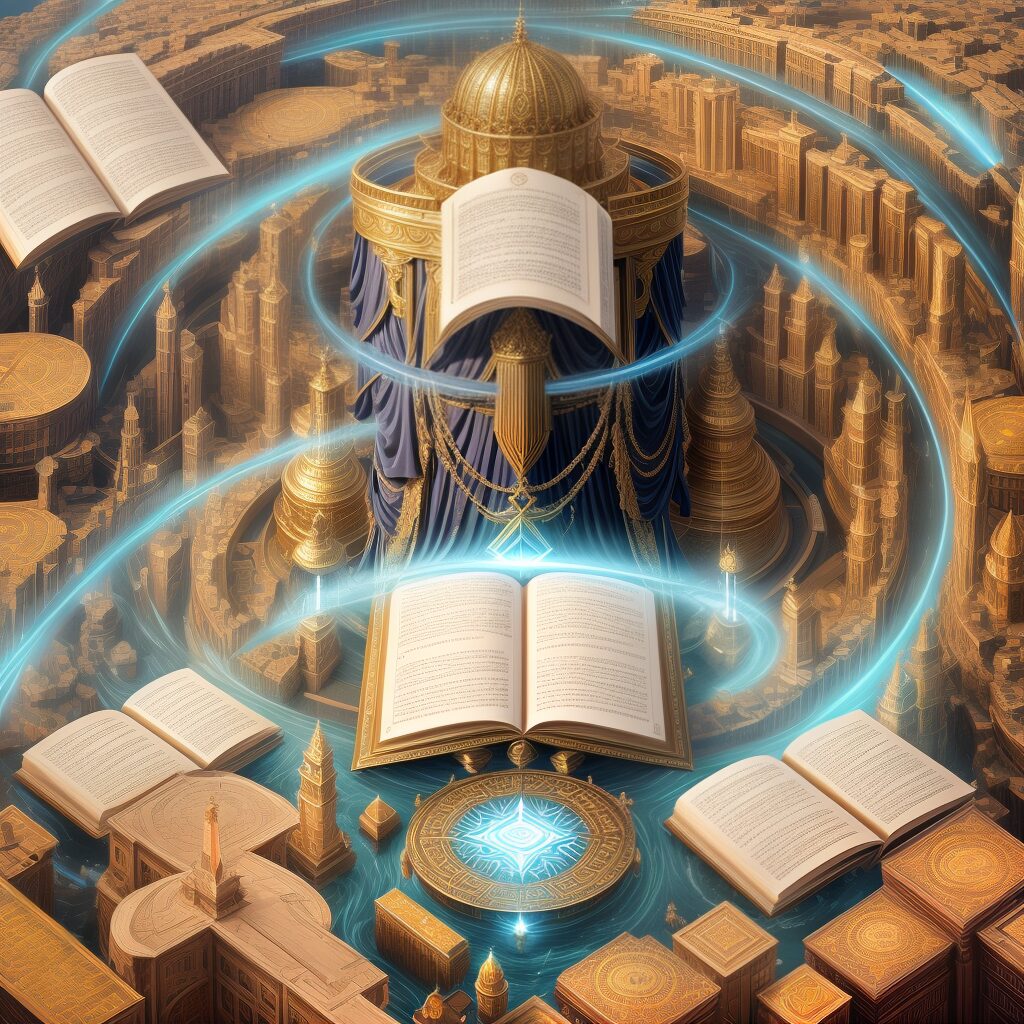
Greetings, saints of the Most High! Welcome to another installment of the Messianic Torah Observer. Today, we delve into the fascinating topic of the Noahide Laws, exploring their origins, development, and implications for both Jews and Gentiles.
Introduction to Noahide Laws
The concept of Noahide Laws originates from Rabbinic Judaism and its literature, particularly the Talmud. These laws were developed by the Talmudists between the 4th and 6th centuries CE, although hints of these precepts existed even earlier.
The Misinformation
Modern Orthodox Judaism teaches that non-Jews who keep the seven Noahide Laws will be granted a place in the world to come. However, this principle is not found in scripture but was developed during the Mishnaic and Talmudic eras. The Mishnah and the Talmud, which house Jewish oral law and commentary, played a significant role in shaping these laws.
The Jerusalem Council’s Edict
The Jerusalem Council’s edict to Gentile believers was not based on the Noahide Laws but on established Jewish halachah for resident aliens living among Jews. Resident aliens were Gentiles who lived and worked among Jews and adhered to community standards without converting to Judaism.
God Fearers
The term “God Fearers” refers to Gentiles who feared Yehovah and walked according to Torah, not necessarily those who kept the Noahide Laws. The earliest reference to the Noahide Laws is found in Tosefta Avoda Zara 8.4, part of the Mishnah, which outlines seven requirements for the children of Noah.
Expansion and Rabbinic Debates
Over time, the Noahide Laws expanded to include additional prohibitions, reflecting the complexities of life and the need for more comprehensive guidelines. Rabbinic debates on the Noahide Laws continued for centuries, focusing on their application and the distinction between Jews and Gentiles.
The Book of Jubilees
The Book of Jubilees suggests that Noah and his descendants were given the whole of Torah, challenging the idea that the Noahide Laws were separate from Torah. This perspective argues that the laws passed down to Noah were, in fact, the whole of Torah, reserved for the children of the covenant.
Conclusion
The Noahide Laws have a complex and debated history within Rabbinic Judaism. They were developed to create a distinction between Jews and Gentiles and to provide guidelines for Gentiles living among Jewish communities. Understanding these laws helps us appreciate the historical and theological context in which they were developed.
God’s Priestly Armies Then and Now: Thoughts and Reflections on Torah Portion 99
Greetings on this warm Shabbat in Maryland. May this post find you, your families, and your fellowships well and bless. These are my thoughts and reflections on the 99th reading of the 3-year Torah Reading cycle. I've entitled this post "God's Priestly Army Then and...
The Power From Within-Thoughts and Reflections on Parashah 98
Greetings to you on yet another exceptionally warm Sabbath in the DFW. May this day of rest find you, your families, and your fellowships well and blessed. These are my thoughts and reflections on the 98th Torah or Parashah Reading of our 3-year reading cycle. It is...
God Brings His Children Unto Himself: My Thoughts and Reflections of Torah Reading 97
Greetings on this warm summer Shabbat in the DFW. These are my thoughts and reflections on the 97th reading of our three-year Torah Reading Cycle. It is contained within Numbers 1:1-2:13; the Haftarah in Ezekiel 47:13-23; and the Apostolic in Luke 15:1-7....
The Realities of the Messianic’s Liberty in Messiah–Thoughts and Reflections of Torah Reading 95
These are my thoughts and reflections on the 95th parashah of the 3-year Torah Reading cycle. It is contained in Leviticus/Vayiqra 25:39-26:2. I’ve entitled this discussion: The Realities of the Messianic's Liberty in Messiah--Thoughts and Reflections on Torah Reading...
TMTO Ministry Update
Greetings I'm back! Well, not quite. But almost. History of Ministry QFC (2012) Blog (2012) Podcast (2014-11/2022) YouTube (2018-11/2022) QFC Affiliates with Feastkeepers (New York) and First Century COG (Baltimore) (2019-2021) Why we ended the podcast...
Shabbat Chazon–Our Hope for Salvation and Redemption–Thoughts and Reflections on Isaiah 1:1-27
Shabbat Shalom Saints of the Most High on this balmy, but sublime Sabbath in the DFW. I'm Rod Thomas. Hoping, trusting, and praying that this teaching finds you well and blessed. As this teaching is being recorded and posted, 7/22/23, the 4th day of our 5th biblical...
God’s Requirements for Holiness in Worship–Thoughts and Reflections of Torah Reading 92
Greetings, Saints of the Most High, on this sizzling but beautiful Sabbath in the DFW. These are my thoughts and reflections on this week's Torah Reading, which happens to be the 92nd reading of our 3-year Torah Reading cycle. Given its contents, I've entitled...
Becoming and Existing as Priests of God-Thoughts and Reflections on Torah Reading 91
Greetings beloved of Yehovah on this steamy, but beautiful Sabbath here in the DFW. This week's Torah Reading is the 91st Reading of the 3-year reading cycle. It is contained in the 21st Chapter of the Book of Leviticus and entails the exclusive and exceeding...
Remaining Set-Apart in the Midst of this Evil and Adulterous Generation-Rebooting my Thoughts and Reflections of Torah Reading 90
Shabbat Shalom Greetings beloved, on this glorious set-apart day from the DFW. My sincerest hope, trust, and prayer is that this reboot of Torah Reading 90 will be a tremendous blessing to you in these troublesome times were living. This Week's Reading as a Reboot...
Conforming to God’s Ways in the Midst of Present Day Wokeness: Thoughts and Reflections on Torah Reading 89
Greetings from the DFW on this warm but glorious Shabbat. We commenced the 4th month of Yah's sacred calendar year earlier this week, and we're trusting in His keeping mercies as we progress throughout the month. These are my thoughts and reflections on the 89th...
